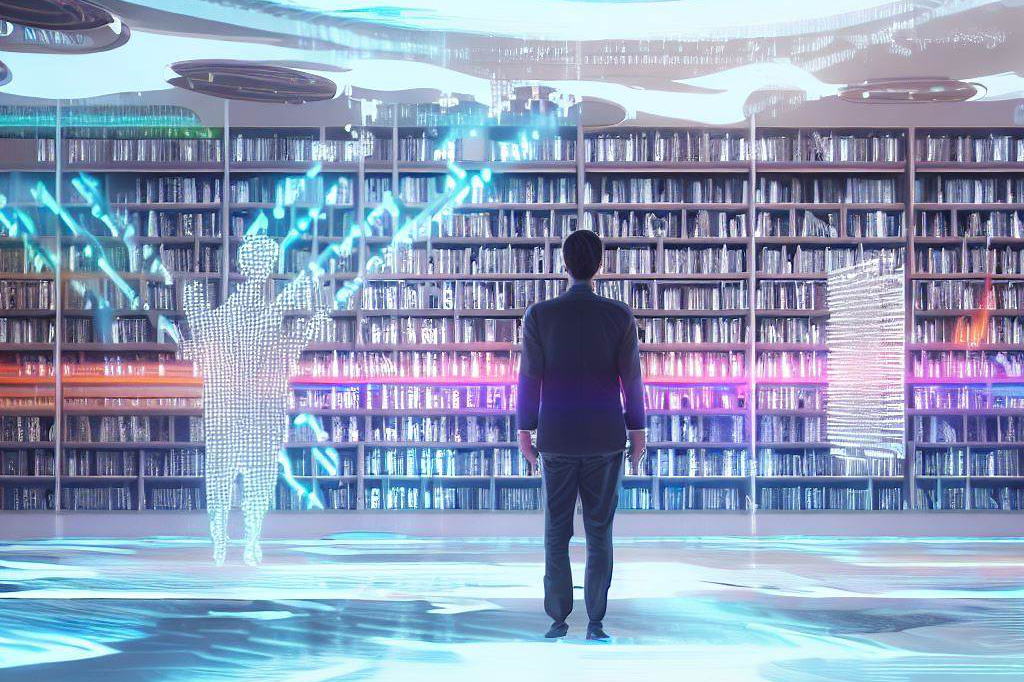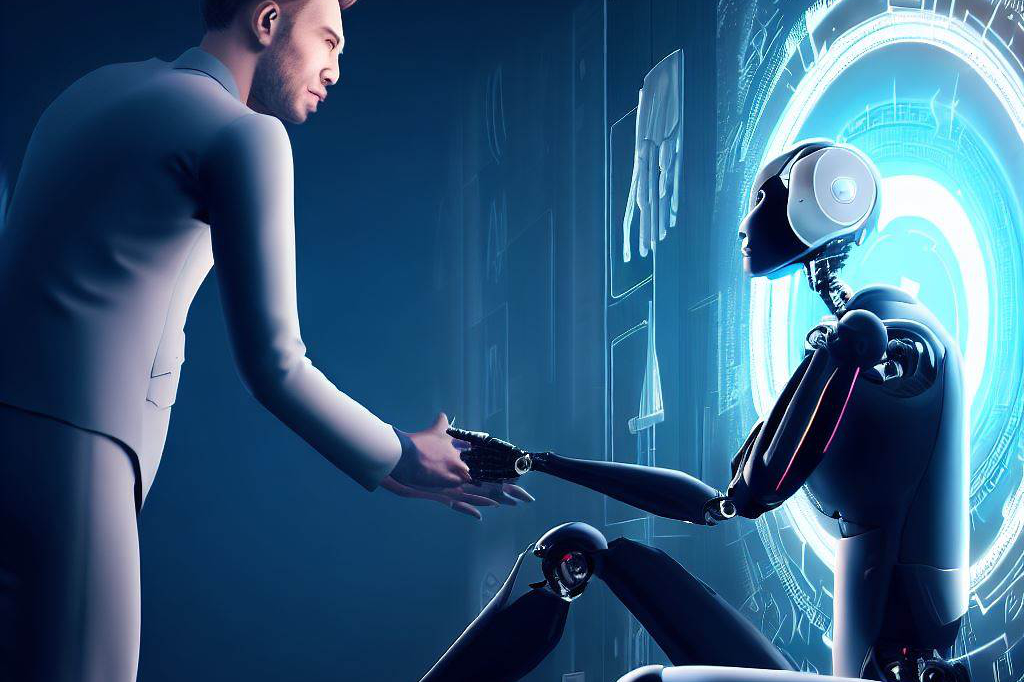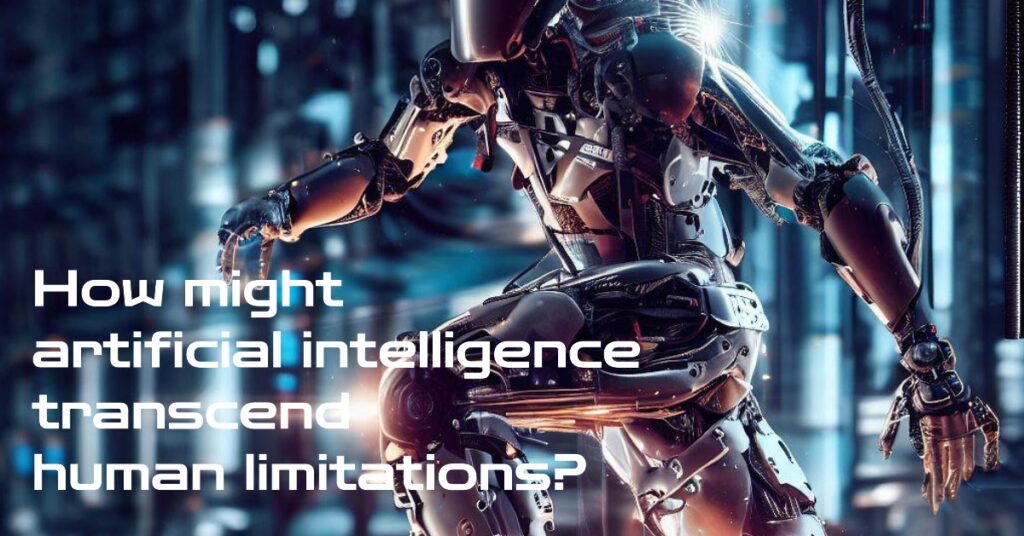Harnessing Artificial Intelligence to Transcend Human Limitations
Artificial intelligence (AI) has rapidly evolved in recent years, showcasing its potential to revolutionize various aspects of our lives. Beyond its current applications, there is a growing curiosity about how AI can be used to transcend human limitations. In this article, we will explore the exciting possibilities of AI and how it may empower us to surpass our innate boundaries.
1. Knowledge Expansion

One of the most remarkable ways AI can help us transcend our limitations is by exponentially expanding our access to knowledge. Traditionally, humans have been limited by our capacity to learn and retain information. However, with AI, we can process vast amounts of data, extract valuable insights, and accelerate our understanding of complex subjects.
Imagine a world where AI-powered systems can swiftly analyze scientific papers, books, and online resources, distilling critical information and presenting it in a comprehensible manner. This would enable us to stay at the forefront of knowledge across various domains, empowering scientists, researchers, and learners alike. By transcending our cognitive limitations, AI can unlock new frontiers of innovation and human potential.
2. Enhanced Decision-Making
AI has the potential to enhance our decision-making capabilities, enabling us to make more informed choices and mitigate biases. Human decision-making is often influenced by subjective factors, emotions, and cognitive limitations. However, AI systems can analyze massive datasets, identify patterns, and provide objective insights to guide our decisions.
Consider the field of medicine, where AI algorithms can assist doctors in diagnosing diseases more accurately and suggesting tailored treatment plans based on extensive patient data. By leveraging AI’s analytical power, we can overcome cognitive biases and ensure that decisions are based on evidence and expertise. This transcends human limitations, ultimately leading to improved outcomes in healthcare and other critical sectors.
3. Physical Augmentation
AI-driven technologies also hold tremendous potential for physically augmenting human capabilities. By integrating AI with robotics and wearable devices, we can enhance our strength, endurance, and precision. This opens up new possibilities in fields such as manufacturing, construction, and healthcare.
Imagine an AI-powered exoskeleton that provides additional strength and stability to individuals with physical disabilities. Such technology can empower them to perform tasks that were previously impossible, thereby bridging the gap between ability and disability. AI-driven prosthetics can restore lost functionalities, enabling individuals to regain independence and improve their quality of life. By transcending physical limitations, AI offers a pathway to a more inclusive and accessible world.
4. Creative Collaboration
Creativity is often considered a distinctively human trait. However, AI has shown remarkable potential in enhancing creative endeavors by augmenting our imaginative capabilities. AI algorithms can analyze vast amounts of artistic works, music compositions, and literary texts, generating novel ideas and inspiring human creators.
In the field of art, for example, AI systems can generate compelling visuals, compose music, or even co-author stories alongside human artists. This collaborative partnership between AI and humans transcends individual limitations, fostering a synergy that sparks innovative ideas and pushes creative boundaries. By harnessing AI’s creative potential, we can unlock new forms of expression and redefine what it means to be human.
5. Emotional Intelligence

While AI has primarily focused on cognitive capabilities, researchers are also exploring ways to imbue machines with emotional intelligence. By understanding and responding to human emotions, AI can enhance our social interactions, empathy, and emotional well-being.
Imagine AI-powered virtual assistants that can detect and respond to human emotions, providing support, guidance, and companionship. Such technology could revolutionize mental health care, assisting individuals in managing stress, anxiety, and depression. By transcending our emotional limitations, AI can contribute to creating a more compassionate and understanding society.
To The Future…
Artificial intelligence holds immense potential to transcend human limitations in various aspects of our lives. From expanding our knowledge and enhancing decision-making to physically augmenting our capabilities, collaborating creatively, and even developing emotional intelligence, AI is poised to revolutionize the way we perceive and interact with the world.
By harnessing AI’s ability to process and analyze vast amounts of data, we can overcome our cognitive limitations and gain access to an unprecedented wealth of knowledge. This empowers us to stay ahead in scientific advancements, drive innovation, and push the boundaries of human potential.
Moreover, AI’s analytical prowess can aid us in making more informed decisions, free from subjective biases. In sectors such as healthcare, where accuracy and precision are crucial, AI algorithms can assist medical professionals in diagnosing diseases, creating personalized treatment plans, and ultimately improving patient outcomes.
AI’s potential for physical augmentation is equally promising. By integrating AI with robotics and wearable devices, we can enhance our physical capabilities and provide opportunities for individuals with disabilities to overcome their limitations. Through AI-driven technologies like exoskeletons and prosthetics, we can enable people to regain mobility, strength, and independence, thereby creating a more inclusive society.
Furthermore, AI’s impact on creativity cannot be overlooked. By analyzing vast amounts of artistic and literary works, AI algorithms can generate innovative ideas, collaborate with human artists, and push the boundaries of creative expression. This fusion of human imagination and AI’s computational power opens up new frontiers in art, music, and literature, redefining our understanding of creativity.
As AI continues to evolve, researchers are exploring ways to develop emotional intelligence in machines. AI-powered virtual assistants that can detect and respond to human emotions have the potential to revolutionize mental health care and contribute to a more compassionate society. By transcending our emotional limitations, AI can provide support, empathy, and companionship when needed most.
Artificial intelligence has the capacity to propel us beyond our innate limitations. Through its ability to expand knowledge, enhance decision-making, augment our physical capabilities, foster creative collaborations, and develop emotional intelligence, AI is transforming the human experience. Embracing AI’s potential while considering ethical implications will be key to harnessing its power for the benefit of humanity. As we journey into a future intertwined with AI, we have an opportunity to transcend our limitations and unlock new realms of human potential.

C M, a seasoned editor, journalist, and consultant, is deeply fascinated by the convergence of technology, space, and the future of humanity.
With a particular interest in transhumanism, futurology, and the philosophical and ethical dimensions of these domains, C M serves as the lead contributor to TranscendSphere and SpaceSpotlight.
When not penning insightful articles on these rapidly evolving fields, C M indulges in their love for podcasts and books, proudly embracing their status as a ‘Happy Nerd Extraordinaire!’





